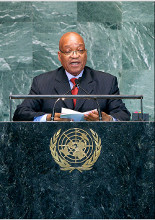
Building Trust in AI through Justice


Array
(
[thumbnail] => https://s42831.pcdn.co/wp-content/uploads/2022/09/hero-placeholder-150x150.png
[thumbnail-width] => 150
[thumbnail-height] => 150
[medium] => https://s42831.pcdn.co/wp-content/uploads/2022/09/hero-placeholder-300x129.png
[medium-width] => 300
[medium-height] => 129
[medium_large] => https://s42831.pcdn.co/wp-content/uploads/2022/09/hero-placeholder-768x329.png
[medium_large-width] => 768
[medium_large-height] => 329
[large] => https://s42831.pcdn.co/wp-content/uploads/2022/09/hero-placeholder-1024x439.png
[large-width] => 1024
[large-height] => 439
[1536x1536] => https://s42831.pcdn.co/wp-content/uploads/2022/09/hero-placeholder.png
[1536x1536-width] => 1400
[1536x1536-height] => 600
[2048x2048] => https://s42831.pcdn.co/wp-content/uploads/2022/09/hero-placeholder.png
[2048x2048-width] => 1400
[2048x2048-height] => 600
[gform-image-choice-sm] => https://s42831.pcdn.co/wp-content/uploads/2022/09/hero-placeholder.png
[gform-image-choice-sm-width] => 300
[gform-image-choice-sm-height] => 129
[gform-image-choice-md] => https://s42831.pcdn.co/wp-content/uploads/2022/09/hero-placeholder.png
[gform-image-choice-md-width] => 400
[gform-image-choice-md-height] => 171
[gform-image-choice-lg] => https://s42831.pcdn.co/wp-content/uploads/2022/09/hero-placeholder.png
[gform-image-choice-lg-width] => 600
[gform-image-choice-lg-height] => 257
)

It is widely accepted that development cannot occur without peace, nor peace without development. Yet whether and how to include building stable societies in the post-2015 development agenda , as recommended by the High-level Panel on the Post-2015 Development Agenda, remains a question.
Numerous global institutions and world leaders, including those from African states and least developed countries (LDCs), have highlighted the linkages between peace and development:
As these examples demonstrate and as I’ve written in Black Star News, global actors, especially African states and LDCs, recognize “that without peace, development won’t occur. Accordingly, every effort should be made to create stable societies with governments that are democratic, transparent, participatory and accountable to the people and observe human rights and freedoms and the rule of law.”
Some actors have expressed legitimate concerns that focusing on ensuring peaceful societies and effective institutions will detract from the developmental focus of the post-2015 agenda. Indeed, it is an expansive agenda with numerous competing imperatives in relation to the economic, social and environmental pillars of sustainable development. The challenges posed by such an expansive agenda understandably raise concerns related to the possible trade-offs among issues. Nowhere is this more apparent than in the broader debate about the means of implementation.
Furthermore, many countries feel that the way in which peace is being discussed in the post-2015 agenda is prescriptive by Western powers, rather than building upon the experiences and efforts of LDCs. There is great concern among a number of LDCs about the inclusion of a punitive and securitized approach to ‘fragile states,’ particularly in light of the current debates regarding the International Criminal Court and the role of international justice.
These are persistent questions that will only become more challenging as the discussions in the Open Working Group and subsequent negotiations on the future development agenda progress. World leaders and institutions have acknowledged the link between peace and development. Now we must move beyond that acknowledgement and reflect on the past experience of countries in special situations to build an effective means of implementation into the post-2015 framework.
Above all the lessons and perspectives of LDCs and African states must be heard for the post-2015 agenda to respond to the needs of the people in the least developed countries who are being left behind.
Video Transcript:
Scenery: A young boy walks towards the camera through sand and dirt, while a woman in a shawl walks away from the camera carrying buckets on her shoulders.
Narrator: Africa’s Sahel region, home to more than 80 million people,
Scenery: A cow pulling a cart rolls past the camera down the busy street and is ridden by three men. Other pedestrians walk along the street in the background.
Narrator: received a boost of 1.5 billion
Scenery: A woman carries a baby and walks past animals.
Narrator: US dollars in new investment from the World Bank
Scenery: Cars drive down a busy highway away from the camera, motorcycles and buses head the opposite way on the other side of the median.
Narrator: on November 4th, 2013.
Scenery: World Bank Group President Jim Yong Kim speaks into a microphone.
Narrator: The pledge was made by World Bank Group President, Jim Kim
Scenery: Footage of President Kim as he deboards a plane and shakes the hands of people waiting nearby.
Narrator: ahead of a joint visit
Scenery: President Kim and a group of people walk down a hallway as cameras flash.
Narrator: with the United Nations Secretary General Ban Ki-moon
Scenery: Politicians sit in a row looking through notes.
Narrator: and the leaders of three international development agencies:
Scenery: A woman and man walk through a crowd, speaking to one another.
Narrator: the African Union,
Scenery: A man sits at a desk in front of a microphone, taking notes.
Narrator: African Development Bank,
Scenery: A man in a suit walks in front of a group dressed in camouflage and holding a flag.
Narrator: and the European Union.
Scenery: Two women bend over plants, gathering leaves.
Narrator: The European Union also pledged 6.75 billion
Scenery: A girl sits in a chair in front of a pile of produce.
Narrator: US dollars from 6 countries in the region
Scenery: A man in an orange vest and hard hat pushes a wheelbarrow past orange traffic cones.
Narrator: Over the next seven years.
Scenery: Three men on motorcycles ride past a sign that says “Bamako”, followed by a green and yellow van.
Narrator: The delegation visited
Scenery: Two people on a motorcycle drive through traffic alongside a car.
Narrator: Mali, Burkina Faso
Scenery: The African countryside
Narrator: Niger, and Chad
Scenery: A group of people walk, one of the men has his hand outstretched.
Narrator: from November 4th, 2013
Scenery: A group of diplomats sit in chairs in a circle, talking.
Narrator: to November 7th. The development leaders
Scenery: A group of diplomats stand in a line to be photographed.
Narrator: pledged to work closely together with country leaders
Scenery: A group of people walk holding a long banner.
Narrator: to promote greater
Scenery: A man walks through a field of crops with a watering can.
Narrator: stability, resilience
Scenery: A man and a woman sit outside beside several children.
Narrator: and sustainable development for the hard-hit Sahel.
Scenery: Several people stand in front ot a building, the Aeroport de Tombouctou.
Narrator: In Mali, the leaders
Scenery: Several buildings shot beyond two small trees.
Narrator: visited the historic city of
Scenery: Two towering structures.
Narrator: Tombouctou in the country’s northern region
Scenery: A man armed with riot gear stands in front of three white UN vehicles.
Narrator: which has been marred by political violence.
Scenery: A group of men walk down an earthen hallway, led by a man in blue and white robes and a white hat. The group of men stop to talk.
Jim Yong Kim, World Bank Group President: I’m here inside the grand mosque of Tombouctou, and we’re getting a tour hosted by the Grand Imam
Scenery: President Kim sits outside of a building in front of a tree and addresses the camera.
President Kim: because we are determined to make a difference. Economic development goes along with peace and security in a way that’s very clear here in Tombouctou. Our commitment is to the entire region, and we want to continue to invest in Mali and in the entire Sahel so that we can both boost prosperity
Scenery: President Kim engages with a group.
President Kim: and end poverty
Scenery: President Kim walks down a line, shaking hands with diplomats.
President Kim: in the context of peace and stability.
Scenery: Cars travel along a distant highway; trees and water in the foreground and background, and mountains in the distance.
Narrator: While in Niger, Kim
Scenery: A group of diplomats stand at podiums in a row before their organizations’ flags.
Narrator: also pledged an additional
Scenery: President Kim speaks at the microphone.
Narrator: 200 million US dollars to support
Scenery: A woman kisses a baby.
Narrator: women’s reproductive health and
Scenery: Someone writes in a notebook.
Narrator: girls’ education.
Scenery: Someone takes a blood pressure reading on someone’s arm.
Narrator: The pledge was a direct response to a call
Scenery: A woman holds a baby.
Narrator: to action from Nigerian president, Muhammadu Issoufou.
Scenery: A woman in a crowd listens to the President of Nigeria speak in a foreign language.
On screen text: Every woman, every child must be healthy, well nourished, and educated in order to be able to take charge of her own destiny.
Scenery: Two men in suits shake hands.
Narrator: The Sahel visit was the second trip to Africa for Jim Kim and
Scenery: Two men walk through a lobby.
Narrator: Ban Ki-moon. In May, the two men traveled to the
Scenery: Several buildings overlooking the ocean.
Narrator: Democratic Republic of Congo
Scenery: Three men pass a ball between them in a dirt field.
Narrator: Rwanda, and Uganda, where
Scenery: Several uniformed students mill about a courtyard.
Narrator: Kim pledged 1 billion US dollars to support the development
Scenery: A group of students walk through a grassy field.
Narrator: of Africa’s Great Lakes region.
World Bank Group President Jim Yong Kim and UN Secretary-General Ban Ki-moon made a joint visit to Africa’s Sahel region from November 4-7 to draw attention to the economic and security challenges facing the highly vulnerable region and to hear first-hand from Sahelian leaders how the international community can better coordinate to provide increased support.
Publication Date:
Dec 19, 2013
Author(s):
Eric Kashambuzi
Topic(s):
Post 2015 Development
Program(s):
Pathfinders for Peaceful, Just and Inclusive Societies


Subscribe to our newsletter and receive regular updates on our latest events, analysis, and resources.
"*" indicates required fields